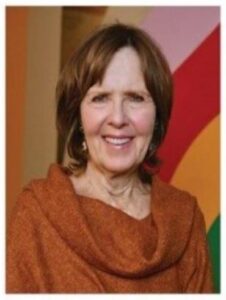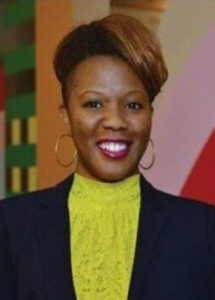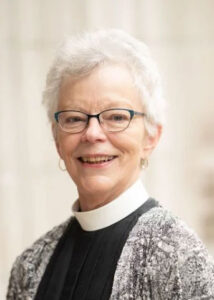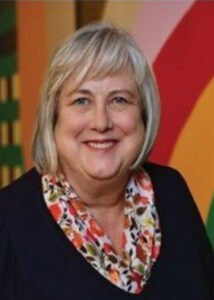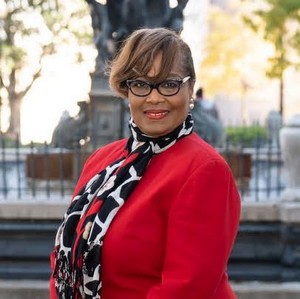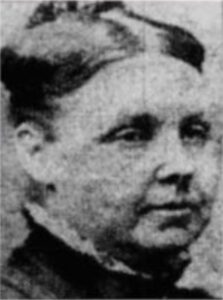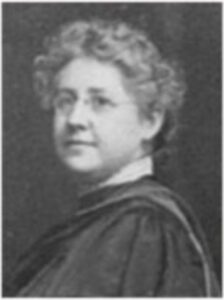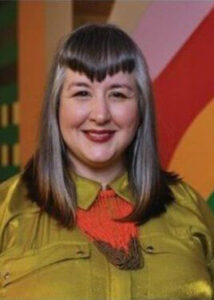
WOMEN OF ACHIEVEMENT
2023
HEROISM
for a woman whose heroic spirit was tested and
shown as a model to all in Shelby County and beyond:
Jennifer Pepper
As the United States Supreme Court prepared its opinion reversing a woman’s right to choose abortion and shuttering abortion clinics, who gets to work opening a new clinic to continue care and assure that pregnant persons have a choice?
Even with all this going against her, Jennifer Pepper does.
Jenn’s undaunted efforts to prepare for the Supreme Court ruling on abortion and her efforts to continue to provide for patients — from reorganizing and cross-training staff to finding, staffing and opening a new clinic in Illinois — drew attention from NBC, NPR and many others who told her story of heroic leadership.
Jenn’s deep commitment to women’s voices and bodily autonomy tracks right back to her “cool mom.” As a young single mother, she taught her daughter and son – and their friends — real names for their body parts, what they were for and how to be protected from HIV and pregnancy.
While Mom worked away from home, Jenn grew up taking care of the household and her younger brother in Alton, Illinois, developing leadership skills and problem solving. Her Catholic grandmothers took grand kids along to community projects like book drives and soup kitchens, instilling in Jenn the importance of helping people. But she also saw the impact family size had on people’s ability to live and thrive.
She says, “Women were who I saw taking care of stuff and I was always flabbergasted seeing my grandmas asking my grandpas for permission to do stuff….I didn’t really care for that.”
Jenn knew she needed straight As to get out of Alton and away to college. When a good-looking postcard from Rhodes College, five hours away in Memphis, Tenn., showed up senior year, she applied and got a community service scholarship.
At Rhodes she soon realized that nonprofits, not international business, would be her future. She interned at Planned Parenthood and honed activism skills producing Rhodes’ Vagina Monologs show and leading other women’s rights and women’s health programs.
One part-time job after graduation was at night at the Memphis Center for Reproductive Health as patient educator and abortion doula, then as full-time outreach coordinator for the agency founded by feminists in 1974. When longtime director Mary Frank retired, Jenn became interim director.
She found out she liked – and was good at – finance, management, the processes of running a nonprofit. When 2017 Woman of Achievement for Heroism Rebecca Terrell was hired as director, she made Jenn her deputy. With an expanding range of services, they rebranded the agency as CHOICES: Memphis Center for Reproductive Health. Jenn leaned into her knack for management and completed her MBA in 2014.
Shelby County government recruited her to run the Memphis Ryan White HIV programs, administering state and federal grant funds. But four years later, when Rebecca took her to lunch in May 2018 talking about the new birthing center CHOICES was building, Jenn eagerly returned as director of finance and operations.
With the birthing clinic, CHOICES became the first nonprofit, non-hospital health care provider in the country to offer both birth services and abortion care under one roof. CHOICES reproductive and sexual health care today covers perinatal and birth services, HIV testing and prevention, contraceptives, STI testing, gender-affirming care, IVF services and well-person exams.
In early 2020 Rebecca prepared to retire and asked Jenn to succeed her as president and CEO. The two worked closely with each other and the board for the transition on Jan. 1, 2021. Roe v. Wade guaranteeing the right to abortion was overturned on June 24, 2022.
“This is my third year,” Jenn says, “and it feels like 10 in lots of ways.”
To continue offering reproductive health care that was banned and made illegal in her own state last August, Jenn led CHOICES in opening a clinic in Carbondale, Illinois, one of the first and few abortion providers to open in a new state. It’s up the Amtrak line from Memphis or a 3 ½ -hour drive, in a state that passed a law in 2019 protecting the right to abortion. CHOICES’ new clinic saw its first patients on Oct. 11, 2022. It is the southernmost abortion clinic for most people across the Southeast.
Abortion is health care. Often life-saving care. Pregnancy complications should not become a possible death sentence. But Tennessee law forbids medical care in most circumstances and even bans terminations for raped, impregnated children.
Jenn Pepper stands firm, speaking out and working heroically to secure crucial health care that we all deserve.


